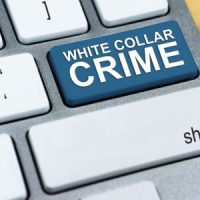Investigative Processes in Orlando White Collar Crime Cases: How Charges Typically Arise

White collar crimes, characterized by deceit, concealment, or breaches of trust, stand apart from traditional criminal offenses due to their complexity and sophistication. Individuals facing accusations involving fraud, embezzlement, insider trading, or money laundering in Orlando encounter investigative techniques distinct from typical criminal investigations.
Understanding these investigative methods employed by state and federal authorities is crucial for those potentially facing charges. Seeking advice from a seasoned Orlando white collar crime lawyer is essential to effectively navigate these complex legal proceedings.
Early Stages of Investigations
White collar investigations frequently begin discreetly, often initiated through routine audits, anonymous whistleblower complaints, or regular regulatory examinations. Agencies such as the Internal Revenue Service (IRS), the Securities and Exchange Commission (SEC), or the Florida Department of Law Enforcement (FDLE) may request documents or information that initially seem routine. Recognizing the significance of these preliminary inquiries can substantially impact the case’s outcome.
The Role of Subpoenas
One common tool authorities use in these investigations is the subpoena. Subpoenas require individuals or organizations to produce documents, records, or testimony crucial to the prosecution’s case. Federal agencies, notably the SEC and Department of Justice (DOJ), extensively employ subpoenas to access financial documents, email communications, and internal records.
Careful handling of subpoenas is essential, as mistakes can result in additional charges like obstruction of justice. Legal counsel can significantly assist in responding appropriately, negotiating the scope, challenging overly broad requests, and ensuring compliance while safeguarding individual rights.
Search Warrants in White Collar Investigations
Search warrants represent a more assertive investigative approach, generally issued when authorities urgently need to secure critical evidence. Warrants require judicial authorization based on probable cause, explicitly detailing the locations to be searched and the items to be seized. Unlike subpoenas, search warrants do not allow negotiations or limitations, frequently surprising suspects.
Search warrants executed at businesses or residences typically aim to seize financial documents, computers, electronic storage devices, and other relevant materials. Experts in forensic accounting and digital forensics then analyze this evidence meticulously, tracking financial transactions and digital activities to strengthen allegations.
Grand Jury Proceedings
Federal prosecutors commonly utilize grand jury investigations in complex white collar cases. Grand juries operate confidentially, with jurors reviewing evidence and testimony presented exclusively by the prosecution without the defense’s immediate involvement or awareness.
Witnesses subpoenaed to testify before a grand jury must do so under oath, with the risk of perjury charges if their testimony is misleading or false. Legal representation during grand jury processes is vital to prepare witnesses, minimize risks, and ensure constitutional protections remain intact.
Informants and Surveillance Tactics
Authorities frequently incorporate surveillance methods and confidential informants into white collar crime investigations. Informants, often insiders within the scrutinized organization, provide crucial intelligence and direct evidence. Surveillance methods, including electronic monitoring and undercover operations, further bolster prosecutorial evidence.
Due to the secretive nature of informants and surveillance, individuals who suspect such investigative activities should immediately consult legal representation to handle associated complexities and mitigate potential liabilities.
Maintaining the Integrity of Evidence
Proper evidence handling and maintaining an unbroken chain of custody are paramount in white collar crime investigations. Investigators must thoroughly document evidence handling from seizure through courtroom presentation. Any mismanagement or discrepancies in evidence handling can lead to successful challenges of admissibility, potentially weakening the prosecution’s position.
Navigating the Legal Consequences
Once investigations conclude, charges like fraud, embezzlement, securities violations, and tax evasion may follow swiftly. Penalties for these crimes include substantial fines, restitution, and imprisonment, underscoring the importance of a robust defense strategy.
Effective defenses often involve challenging procedural errors, negotiating favorable plea agreements, or disputing claims based on intent and authorization.
Importance of Skilled Legal Representation
Comprehending the investigative intricacies in white collar cases is essential for developing an effective defense. Early intervention by skilled attorneys can significantly influence investigative outcomes, potentially reducing or preventing formal charges.
Contact Joshi Law Firm, PA
If you or someone you know is under investigation for white collar crime in Orlando, timely legal intervention is crucial. Joshi Law Firm, PA specializes in criminal defense, offering strategic counsel and vigorous representation tailored specifically to your unique situation. Contact Joshi Law Firm today to ensure your rights and interests are thoroughly protected.
Sources:
- Internal Revenue Service (IRS) Investigations
- Securities and Exchange Commission (SEC) Enforcement
- Florida Department of Law Enforcement (FDLE)
- Federal Rules of Criminal Procedure – Rule 17 (Subpoenas)
- Federal Rules of Criminal Procedure – Rule 41 (Search Warrants)
- Department of Justice – Grand Jury Process

